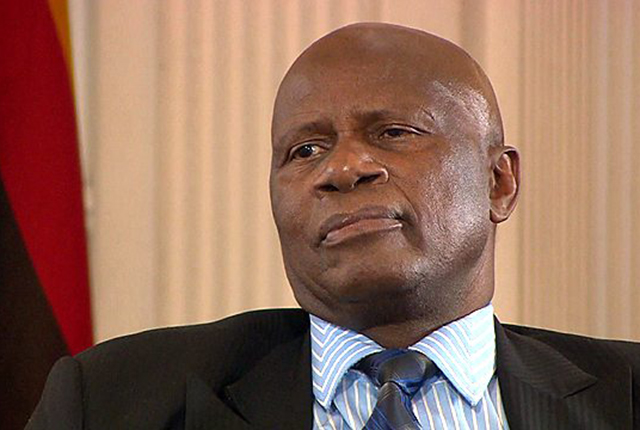Rural economies key to Africa’s future


Command Agriculture has allowed Zimbabwe to recover its rhythm towards accomplishment of the objectives of the land reform programme
Stephen Mpofu Correspondent
When some Zimbabweans, whatever their number, rend the air at sniper shots being fired to try to demobilise Command Agriculture – the exciting new instalment in our country’s agrarian revolution – the context of their anguish must be understood, and appreciated, by people both at home and abroad for one critical reason.
The patriots see a bigger picture of two ugly opposing agendas that, like unlike poles, will never meet and are therefore antagonistic towards the peoples of Africa.
One of the agendas posits a never-die fight by the imperialist West against Zimbabwe’s land reform programme after years of a false start in their campaign to try to remove the ruling zanu-pf Government and replace it with puppets who kow-tow to them and also oppose the restoration of the critical land resource to its rightful owners. The other agenda is quietly aimed at making Africa perpetually subservient to Western political designs as puppets of contemporary imperialism with hegemony as its trade-mark.
Yet land, the soil, stands as God’s endowed key asset to open a brave new future for Africa as a whole, as will be implied by various suggestions to follow in this discourse.
To begin with, this country was at the time of independence in 1980 the breadbasket for Southern Africa with some of the “bread” being distributed as far as East Africa and Egypt to the north of the African continent. Zimbabweans, including this communicologist in exile at the time, were aware that the peasantry working their small and often infertile pieces of land – while large chunks of prime farmland remained in the hands of white settler farmers – produced most of the food with the surplus going to feed other people in our region and elsewhere on the continent.
It was therefore logical that much of the rich land stolen from black people during colonialism should after independence be restored to its rightful owners.
This triggered illegal economic and financial sanctions by Western countries led by the former colonial power in our country, Britain, and the United States, with their ilk in continental Europe stepping into the fray to try to nullify our independence and freedom which would remain hollow without land as an integral part.
Land, the soil over which a protracted armed struggle was waged with the dear lives of young men and women being shed in the freedom struggle.
With Zimbabwe’s social and economic emancipation hamstrung by the effects of sanctions and aggravated by drought due to climate change, the future of the motherland had looked precarious if not doomed altogether until God, our gracious loving Creator, inspired the Government with a novel idea, the Command Agriculture initiative by which Zimbabwe appears to have just recovered its rhythm towards accomplishment of the land reform programme.
But not only that. Command Agriculture also appears to have the potential impetus for economic enhancement in other countries in the Southern Africa Development Community if the interest recently shown in it by Namibia is anything to go by.
Indeed, that China, a world economic giant, has recently applauded Command Agriculture, indicating that the Chinese people stood to benefit much from Zimbabwe’s programme, shows the great potential that the Zimbabwe Agenda for Sustainable Socio-Economic Transformation (Zim-Asset) has for developing other economies with command livestock ready to boost beef exports by African countries to lucrative markets overseas.
What Zimbabwe’s new Command Agriculture initiative appears to suggest is that robust rural economies hold the key to a bright future with not only self-sufficiency in food on the continent but also in boosting job opportunities especially for young people tramping the streets of cities without something to occupy them and, as a result, getting involved in crime.
Our continent’s prime financial lender, the African Development Bank (AfDB) , says that boosting rural economies stands as one way of creating employment for young people.
For that reason, providing educated young people with, for instance, technologies to process agricultural produce for both local consumption and exports will open new job opportunities for the youth.
It is to be assumed therefore that the AfDB is ready to put its money where its mouth is to bolster rural economies for the good of the African people.
In addition, Global Business Round Table – an organisation of Christians formed to improve skills in the business environment as a whole – recognises land as an asset that God wants used to improve the lot of the people on the continent and calls for the fulfilment of that objective in addition to providing skills to people engaged in various entrepreneurial undertakings for the success of their enterprises.
Furthermore, individual African states should as much as possible desist from the habit of holding the begging bowl to the international community each time hunger stalks their people during drought – while dams or other bodies are reserved for aquatic sports – or to augment summer cropping when seasons are good.
Instead, water from these reservoirs should be tapped to irrigate winter crops so that there is food on the dinner table even if summer rains are erratic or fail altogether.
Add to that the new, Command Fisheries also introduced by Zimbabwe around the country.
That way independent Africa will demonstrate to all and sundry that the continent has come of age and that whatever help is rendered by outsiders should be seen not as a form of enslavement of those needing the assistance, but, rather, as a mark of the interdependence of the human race as opposed to the one beast by itself philosophy in the animal kingdom.
Moreover, food self-sufficiency stands to obviate social and political instability often used by power-hungry opposition political parties to get into power by inciting their members to resort to violence and in that way discredit a sitting Government.










Comments